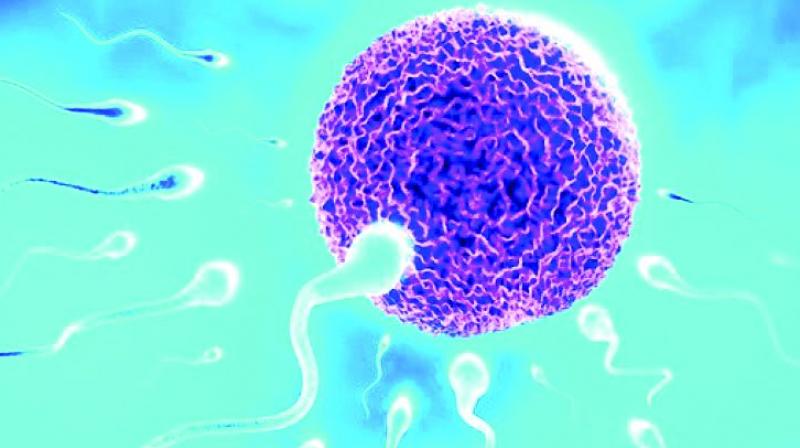Pesticides behind falling fertility rate in Andhra Pradesh, Telangana
As the first test tube baby completes 40 years this month, lifestyle and clinical factors are also found to be key reasons for infertility.

Visakhapatnam: Excessive use of pesticides in agriculture may be one of the factors contributing to increasing infertility among the people in Andhra Pradesh and Telangana state. As the first test tube baby completes 40 years this month, lifestyle and clinical factors are also found to be key reasons for infertility.
Why the pesticide issue poses a threat to the people of the two Telugu states is that they are among the high pesticide consuming states in India. TS and AP account for 24 per cent of all the pesticide used in the country, according to reports.
Besides, the infertility statistics may also vary in both the states as the Total Fertility Rate (TFR) in AP and TS is lower than the national average, according to the latest report from the National Family Health Survey.
TFR is the average number of children a woman would have had by the end of her childbearing years if she bore children at the current age-specific fertility rates (15-49 years old). The total fertility rate (TFR) in India is 2.2 children per woman while it is 1.83 in AP and 1.78 in Telangana.
“Infertility could be attributed to factors such as increasing marital age, delay in childbearing, rising alcohol and tobacco consumption, obesity, pollution and clinical ones as a polycystic ovarian syndrome and tuberculosis among others. However, pesticides in food is one of the main reasons behind infertility and cannot not be ignored. People in states where pesticides are indiscriminately used could be at more risk than others.” said Dr Krishna Chaitanya, clinical embryologist at Oasis Hospital.
Gynaecologists from various parts of the state turned up at the Assisted Reproductive Technology (ART) Conclave, organised by Oasis-Centre for Reproductive Medicine in Vizag on Sunday.
“Gynaecologists play a major role in guiding a couple facing infertility issues. The couple visits them first and not the IVF centres. So, the conclave highlighted new techniques emerging in the ART field and also demonstrated them live in workshops to make clinicians understand male infertility, hysteroscopy and various other techniques that help couples have healthy babies without genetic disorders. The take-baby-home success rate with ART is about 30-40 per cent now in India,” said Dr. Durga G Rao, co-founder and medical director of Oasis.
While infertility in females remains at about 50-60 per cent, it is witnessing a sharp jump among males with about 30-40 per cent.
“In India, the general notion is that infertility clinics are meant for women, and male infertility is ignored. Male factor infertility is the alteration in sperm concentration or motility or morphology in at least one of two samples of sperm collected at one and four weeks. Hence, infertility is related to reproductive anomalies or disorder in men and should also be evaluated when a couple visits IVF clinics.” said clinical embryologist Dr. Chitanya.
Some ART clinics in AP are equipped with new technologies such as pre-implantation genetic tests that are performed before embryo transfer during IVF, so that doctors may pick one without a known or suspected gene problem (PGD), or one without an abnormal number of chromosomes (PGS).
“We have new technologies that can check the chromosomes of each embryo. So, we can implant the embryo with the right number of the chromosomes to avoid birth defects. For couples with a family history of thalassaemia, cystic fibrosis and sickle cell anaemia, it is better to do these gene profile tests,” said fertility specialist, Dr. Radhika Potluri, adding that the mean age in at least 40 to 45 per cent of infertile couples in Andhra Pradesh has been actually falling from the late thirties to early thirties.

